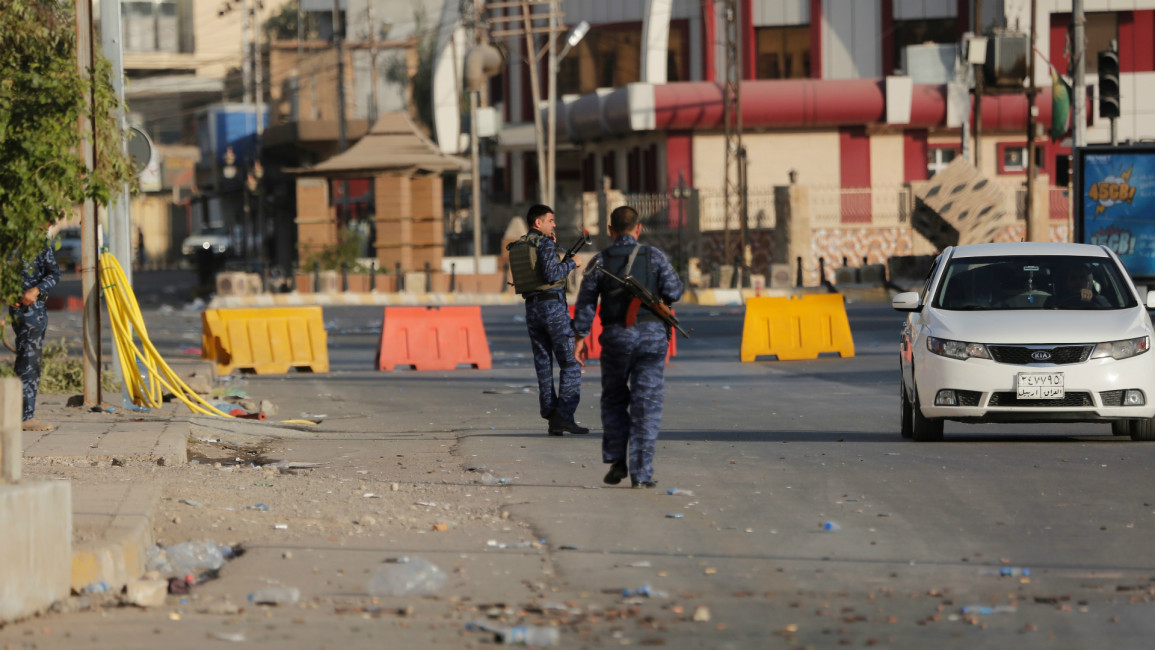Saddam and the Islamic State: family connections
Earlier this week on Tuesday, the Kirkuk police department announced that a cousin of former Iraqi President Saddam Hussein had been arrested south of the city on charges of participating in recent attacks launched in the province by the Islamic State.
In a press statement Brigadier General Sarhad Qadir said that extensive raids carried out in the Daquq region, 35 km south of Mosul, had lead to the arrest of Nizar Mahmud Abdul Ghani, a cousin of Saddam Hussein.
“Abdul Ghani is a former officer in the private security service, while his brothers are working with the IS southwest of Kirkuk. The security operation also resulted in the confiscation of four Kalashnikov weapons and quantities of ammunition,” said Qadir, adding that Abdul Ghani, who was a member of Saddam Hussein’s personal security service, had been found in an empty water storage tank.
The Kirkuk Connection
As many as 80 IS fighters and over 115 others including Kurdish Peshmerga troops were killed last Friday when IS sleeper cells and operatives posing as civilians displaced from Mosul staged attacks in Kirkuk city and the nearby Dibs power plant before Iraqi security and Kurdish Peshmerga forces re-asserted control.
But interestingly, Abdul Ghani is not the only of relative of Saddam Hussein to have gained importance within the Islamic State.
It has long been asserted that Saddam era-officials played a central role in the rise of the Islamic State, and the group’s expansion across areas of Iraq and Syria in 2014 with Baath Party officials absorbed into the group while helping to strengthen the group’s spy networks, battle tactics and administration in areas under its control.
The younger generation
But this affiliation extends into direct family members. In addition to Abdul Ghani Saddam Hussein’s nephews Ayman and Ibrahim al-Ibrahim, son of Saddam’s half-brother Sabawi al-Ibrahim, both have roles in the story of IS’ evolution.
Sabawi al-Ibrahim, served as an head of secret police under Saddam Hussein during the 90’s and proved quick to join the insurgency against US forces in Iraq in 2001 when the Hussein regime was toppled coordinating attacks on Iraqi soil from the town of Zabadani, located close to Damascus.
During this time in Syria Syrian President Bashar al-Assad, keen to facilitate the movement of fighters into Iraq to target US forces is said to have met with Sabawi and other former Iraqi Baath figures, but later in 2005 under coalition pressure Assad gave Sabawi up. As a result he was sentenced to death for planning terror attacks in Iraq in 2009 but died of cancer before being put to death in 2013.
But according to The Henry Jackson Society even before this date both of Sabawi’s sons Ayman and Ibrahim had already come under US sanctions for their association with a shady paramilitary group called Fedayeen Saddam that arose after the US-invasion of 2001, and was loyal to Saddam before many members consequently migrated towards IS.
Ibrahim is accused of planning and taking part in the brutal massacre of as many as 1566 Shia Iraqi airforce cadets in an attack on Camp Speicher in Tikrit in June 2014, but consequently died fighting for the extremist group in Bayji in May 2015 in northern Iraq.
Ibrahim’s brother Ayman was in 2005 convicted of illegally crossing into Iraq from Syria, having already been sentenced to life imprisonment in a different case on charges of possession of illegal weapons and manufacturing explosives, and sentenced to 15 years in prison having been arrested in a raid in his home town of Tikrit.
However, according to Associated Press, with the help of a police officer in September 2006 Ayman Sabawi was able to escape from a prison located close to Mosul. And to this day he remains at large.


![President Pezeshkian has denounced Israel's attacks on Lebanon [Getty]](/sites/default/files/styles/image_684x385/public/2173482924.jpeg?h=a5f2f23a&itok=q3evVtko)



 Follow the Middle East's top stories in English at The New Arab on Google News
Follow the Middle East's top stories in English at The New Arab on Google News


